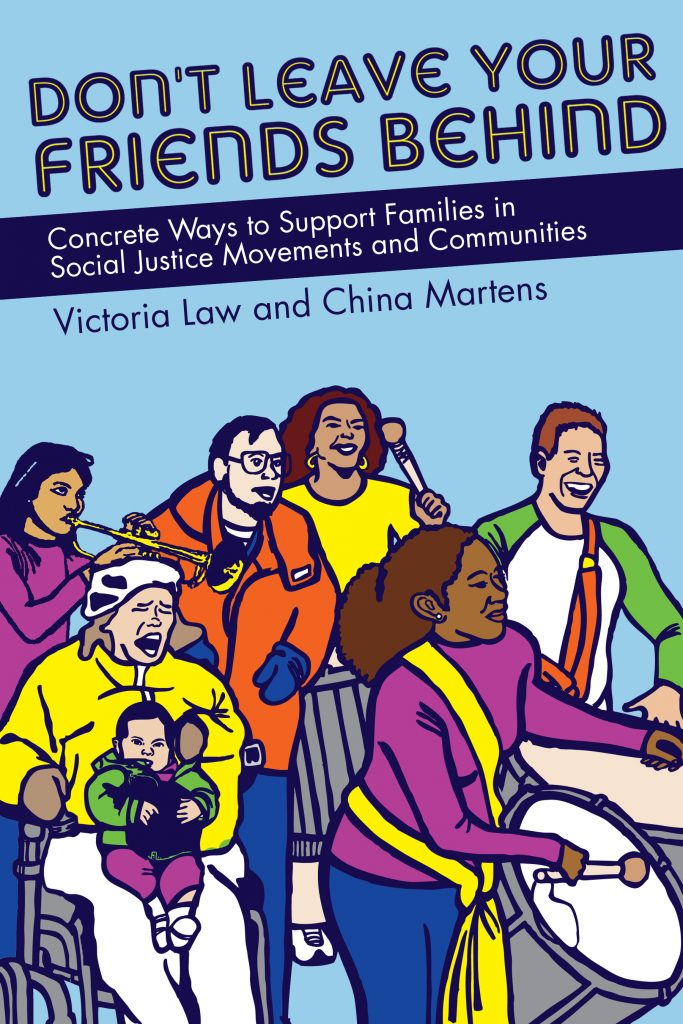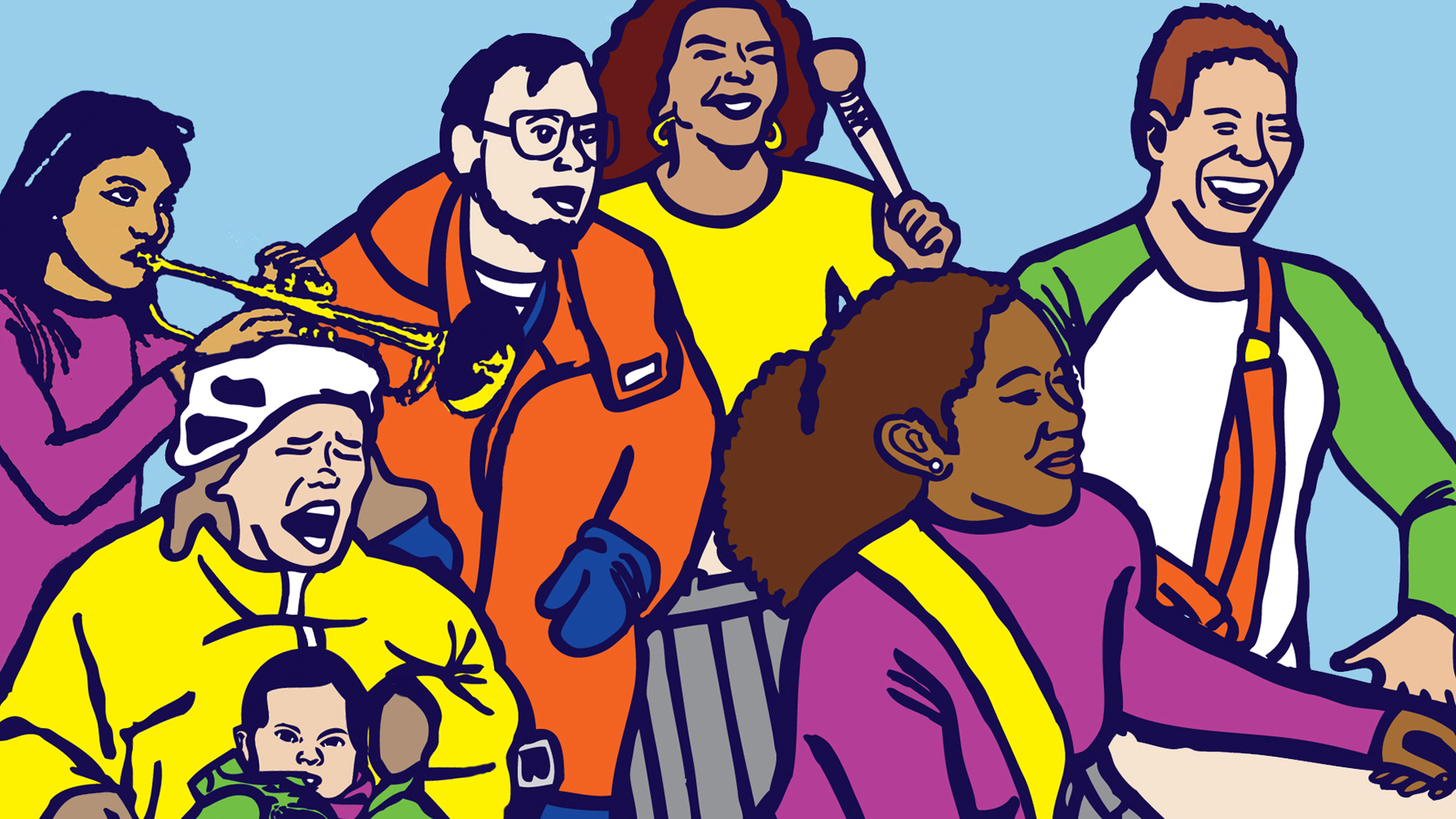
By Eleanor J Bader
Truthout
November 16th, 2012
In
many ways, the two kids I helped raise had great childhoods. There were
four adults who loved them – a mom and stepmom, a dad and stepdad – and
they were surrounded by role models who were engaged in efforts to
improve their communities and world. They learned early that different
people have different strengths and grew to appreciate variation in both
style and substance. That said, regardless of which house they were
living in on a particular day, they always bristled when they were
dropped off in activist-sponsored child care or dragged to
demonstrations. “It’s boring,” they’d whine. “There’s nothing for us to
do.”
More often than not, they were right.
Activist mothers Victoria Law and China Martens have compiled an anthology aimed at changing this. Fifty-one essays offer practical ideas – outlining specific ways to integrate kids into conferences, rallies and meetings and ensure that babies and toddlers are well tended. The goal? To enable exhausted parents and caregivers to participate in movements for social justice by offering concrete support to them and their offspring. What’s more, several contributors address caring for parents and other elders and highlight how best to bolster comrades and friends when they are grieving. Furthermore, the importance of maintaining one’s own mental and physical health is spotlighted as a political imperative.
As the chapters unfold, the devastation wrought by ageism, homophobia, transphobia, racism and classism is unveiled. At the same time, anthology contributors take pains to present a liberatory vision, one in which the collective good trumps individual betterment and where what goes on behind closed doors matters.
Jessica Trimbath’s “The Red Crayon” is a case in point. A stark look at the intersection of race, class and gender, she brings readers into the waiting room of Novum Pharmaceutical Research, where a small band of women, some with kids in tow, sit and wait. All are eager to participate in a paid study of Levonorgestrel/ethinyl estradiol and pooh-pooh possible side effects such as breast tenderness and vomiting, anxiety and blood clots. After all, it sounds like easy money.
Trimbath’s description of the place is unsettling: “The tension in the waiting room rises as the kids get more bored and mothers get angrier,” she writes. “Last time I was here, a mother hit her son in the face and I stood up and started yelling, telling her I was going to call the police. I threw down the words child abuse and she threw down white bitch and we stood there screaming at each other, both of us tired and triggered, two adult children, survivors of abuse and addiction.”
This particular story has a relatively happy ending; the two women eventually make nice and a truce is called. Yet the bigger question remains: how can we support one another in meaningful ways while simultaneously meeting the social, emotional and material needs of our children?
Mariah Boone’s “Lactivists Do It Better: What Radical Parents’ Allies Can Learn from La Leche League International” presents a standard that should be sacrosanct: “No one takes any activist less seriously because she has a child on her lap at a La Leche League conference and there are always willing arms to pass children among whenever they are needed,” she writes. “Marches and events are planned under the assumption that children of various ages will be involved and all activities take into account the needs of mothers and children.”
Needs, of course, are always diverse, but planners of the 2009 City From Below conference in Baltimore are celebrated for their attempt to meet them. According to writers Sine Hwang Jensen, Harriet Moon Smith and China Martens, the confab initiated something called Kidz City. Far beyond a narrow conception of child care, Kidz City boasted volunteers who ran fun workshops and activities specifically for youth, teaching them about composting, seed-bombing the neighborhood, and later engaging in banner- and sign-painting. In addition, a workshop called Genderful World encouraged the kids to dress wildly, wearing clothes picked from a costume box.
Some of these activities were conjured up by Britain’s four-year-old Child Rearing Against Patriarchy Collective (yes, they go by the unfortunate acronym, CRAP), a group that provides care and offers hands-on advice for those wishing to make activism more family-friendly. Their chapter in the book gives instructions to anyone wishing to participate in a Kids or Family Bloc at a demonstration, march or rally. Start planning early, they begin. “Give yourself plenty of time to get to meeting points and allow for nappy changes, nose bleeds, tantrums, and all the weird and wonderful things that go with bringing children anywhere.” Then, once at the event site, find the person who is responsible for providing first aid. Also find the Kids Bloc representative who will serve as the liaison for transmission of any crucial information. If you want to protect yourself or your children from photographers, they continue, use masks or face paint. Lastly, organizers are told to compile a list with the names and phone numbers of each child and his or her caregiver/s, plus info on allergies, medications and other health data that might be relevant. Lastly, they urge organizers to create a mechanism for post-event feedback.
As for meetings and conferences, the CRAP Collective makes clear that: “child and family provision should not be an afterthought but an integral part of every event. Ask non-parents to provide a kids’ version of the adult workshops so that the younger generation feels involved and respected for their participation.” An example: a climate change workshop geared to elementary school kids that sensitizes them to global warming and leads to collaboration between adults and children.
Similar to CRAP’s anarcho-feminist model, Don’t Leave Your Friends Behind zeroes in on Mexico’s Zapatistas and heralds the way they integrate children into daily activities. At meetings and conferences, Victoria Law writes, “babies sometimes cry, but no one takes much notice and, unlike meetings and events in the north, no one dares suggest that the mothers leave…. The Zapatistas incorporate their children into the struggle, teaching not only with stories and words, but also by example.”
Other contributors to the anthology chime in to add a host of divergent perspectives on what is needed to make activism possible. Among them are Clayton Dewey’s “Babyproofing for Punks,” which addresses the need for safety and hygiene in places the child may visit. Mikaela Shafer suggests ways to support parents who are in mourning for a child who has passed away, and Amariah Love offers tips on organizing a local child care collective to work at events coordinated by progressive groups. Jennifer Silverman’s jolting piece describes ways to deal with kids with special needs, and reminds us that “17 percent of children [in the United States] have a developmental or behavioral disability including autism, mental retardation, or ADHD as well as delays in language or other areas.”
All told, the collection is stimulating, and whether we are parents, eldercare providers, or simply concerned human beings, inclusivity – not leaving anyone behind – is key to making the changes we wish to see. After all, if another world is possible, doesn’t it have to include the young, the old and the in between – whether able-bodied or not?
Back to Victoria Law’s Author Page | Back to China Martens’ Author Page






